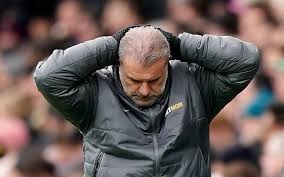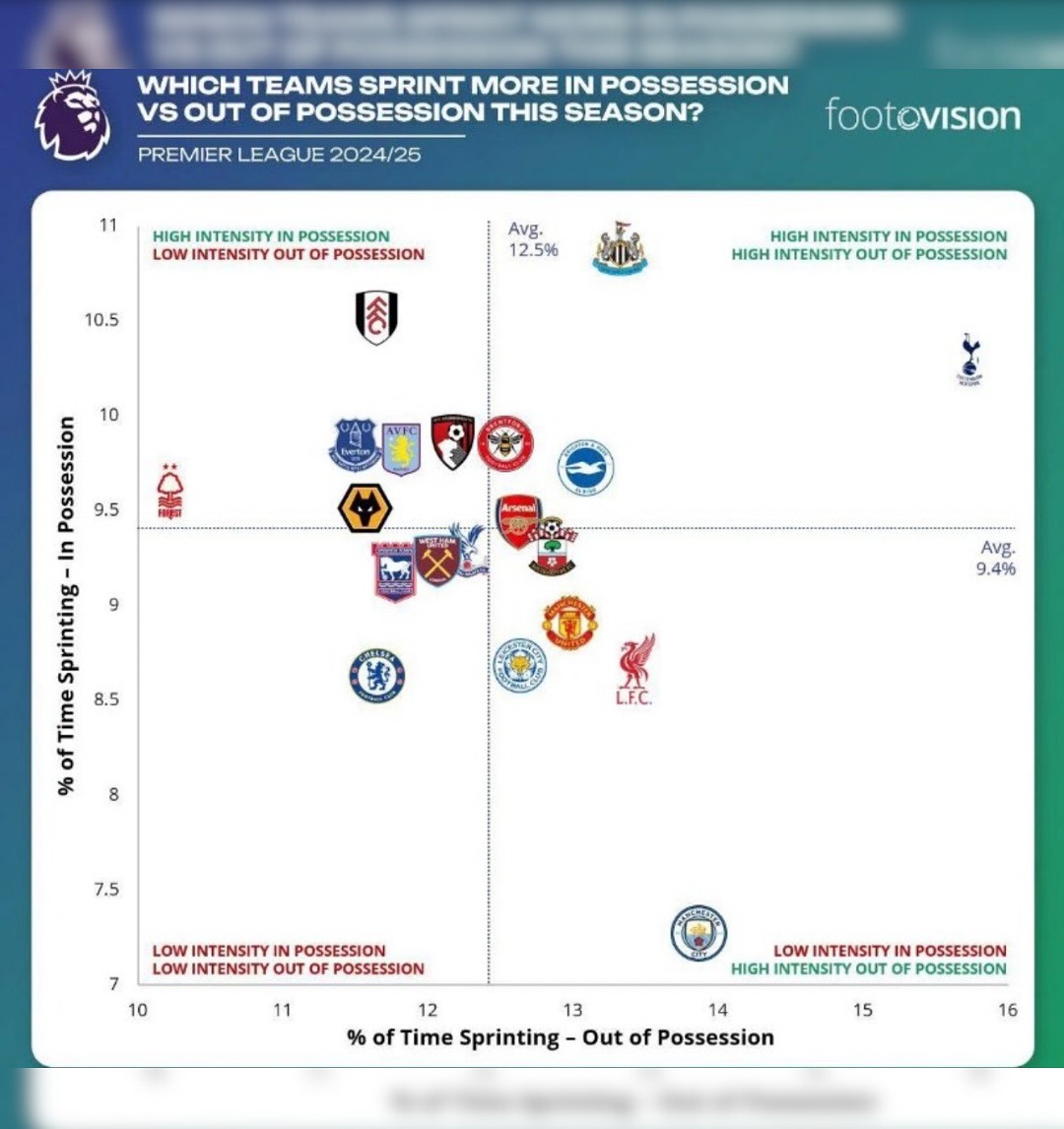What to do with Postecoglou?
After Tottenham Hotspur suffered their 15th defeat of the Premier League season, is the writing on the wall for the Australian manager?

Last Sunday’s defeat at Craven Cottage followed a familiar pattern for the North London club. They never got going in a laboured first half performance, prompting Ange Postecoglou to make changes at half time. Things improved in the second half, before a sucker punch in the 78th minute followed by a Ryan Sessegnon goal in the 88th condemned them to yet another defeat.
It means Spurs have now suffered 15 defeats in the Premier League this season, a record not matched at this stage since the 1997-98 season when they finished 14th on 44 points. They still need 10 more points to match that tally.
Of course, Spurs are still in the Europa League, a tournament that is very winnable for a squad with their talent and which would provide a route into the Champions League. The final nine league games might seem irrelevant at this point, but with most of the first XI players finally available, it will provide a strong indication of whether Postecoglou can still get his side performing at the required level.
But even if Tottenham see a monumental upturn in form to end the season strongly, Daniel Levy and co. are going to be faced with the question of whether the Postecoglou project is worth persisting with. In modern football, rightly or wrongly, two seasons is a long time and while there have been glimpses of something worth sticking with, Spurs have seemingly gone backwards since last year.
There are two questions Levy, Johan Lange and Scott Munn must ask. Firstly, will the Angeball system ever produce enough consistency over a season to finish near the top of the table? And secondly, can it produce a season without a massive influx of injuries at some point?
If, after review, they believe the answer to each is yes, they should fully back Postecoglou in the summer with the funds to build the squad he needs. However, if the answer to either is no, they should part ways and move on to pastures new.
We’ve all seen what Angeball at its best can do. In the first ten games of last season, Spurs won plaudits for an electrifying style of high intensity football, pressing teams off the park and moving the ball forward with pace and purpose. And this season, wins at the Etihad, Old Trafford and at home to Aston Villa have showcased what Postecoglou’s Spurs can do when firing on all cylinders. Although Jose Mourinho and Antonio Conte’s sides never fell so low in the table, they also never showed the same capacity to play sides off the park.
But it's no use being as good as this Spurs squad can be when it's too infrequent and mixed with performances like those at home to Ipswich and Leicester. Without consistency, with the league as competitive as it now is, midtable will always beckon.
And there is an increasingly strong argument that Angeball will never be consistent. Even in the games they win, Spurs will usually give away several huge chances. The byproduct of their all guns blazing style is that they lack control in the midfield and solidity at the back. Without these two traits, a Premier League side will always be vulnerable. The league is just too good now.
I’ve written previously about the need for a top-class holding midfielder for Postecoglou’s style to be successful, with Yves Bissouma and Rodrigo Bentancur lacking the tactical nous to fill this role. Archie Gray, although full of potential, has only just turned 19 and his best position is still unclear.
Postecoglou might argue, as he has done often during this season, that Spurs have had immense bad luck with injuries, missing their two first choice centre backs for the majority of the season, along with long periods without their first choice goalkeeper, left back and striker. This would affect any side, but whereas the likes of Liverpool, Manchester City, Chelsea and Arsenal have squad depth, Spurs started the season with only 3 centre backs, and a back up keeper who could not play in the way Postecoglou asks.
The problem with this argument is Spurs now have the majority of these players back, but are still regularly losing. And with the footballing schedule as it is now, injuries are an inevitability, particularly when playing at the intensity Postecoglou demands. Many argue he is at fault for Tottenham’s injuries.
So Tottenham and Levy once again find themselves at a crossroads, contemplating yet another managerial change and yet another rebuilding project. Some solace can be drawn from the fact Spurs have clearly recruited some promising young talent that should be of use in the event of a change of coach. The likes of Gray, Lucas Bergvall, Djed Spence, Micky Van De Ven and Wilson Odobert have all provided bright sparks during Postecoglou’s tenure, while academy duo Mikey Moore and Jamie Donley could be stars in the making. With the right guidance and system, there is reason to be optimistic about this young Spurs squad.
But it increasingly looks like Postecoglou might not be the man for the job. The glimpses of peak Angeball have been too few and far between, while the demands of his system are perhaps too high for an era in which footballers are run into the ground via 50+ game club seasons (Spurs will hit the 60 mark if they reach the Europa League final) before even taking internationals into account. One of the most striking pieces of data to come out of Postecoglou’s tenure is this graph illustrating the amount of time teams spend sprinting in and out of possession. Spurs find themselves far removed from the league's other 19 sides, sprinting for the majority of the time with and without the ball. It is notable that Nottingham Forest, the surprise story of the season, conserve energy out of possession in order to use the ball with intensity.

There is maybe hope consistency can be achieved with greater depth, but how plausible is it that Levy and Lange can build a squad of 22 first team quality players? The running demands placed even on the centre backs means that, arguably, a top quality backup is needed in every position to avoid a huge drop in performance when the injuries appear.
Using this logic, Spurs would require huge investment this summer, while only offloading those players deemed not good enough. For a Chelsea or Manchester City this might be plausible, but it would prove a huge departure from Levy’s operating style. And it would also require belief that Postecoglou can eradicate Spurs’ inconsistency, something he has been unable to do in almost two full seasons.
So the logical conclusion is the Postecoglou project is unlikely to succeed in N17. It seems the fanbase and pundits are drifting towards this position, meaning Tottenham will find themselves searching for a 14th permanent manager in ENIC’s 24 year reign. And in a league with greater depth than ever before, Spurs risk mid-table mediocrity becoming the norm if they don’t get this next appointment right.
0 Comments Add a Comment?